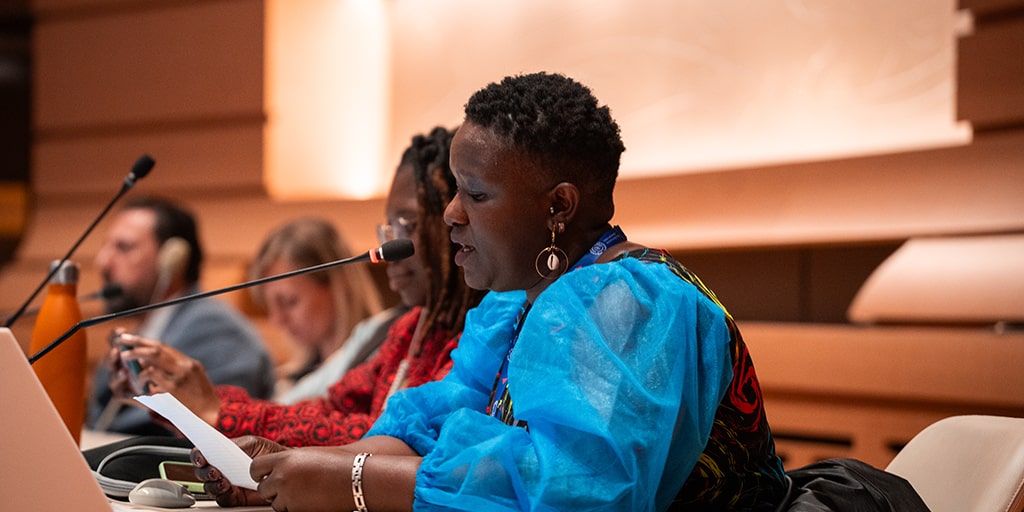Speaker: Jemima Nyakongo, HNI Interim Coordinator
I represent HomeNet International, a global network of 71 home-based workers’ organisations, representing 1.3 million home-based workers. We urge that a convention on Biological Hazards needs to:
- Expand the definition of workers to cover all categories of workers- formal and informal economy workers, workers with employer and employee relationships, and self-employed workers— Because decent work is the right of all workers. Home-based workers are both self-employed workers, as well as homeworkers, vital to both domestic and global supply chains. We also have an ILO convention for Homeworkers: Convention 177, the Home Work Convention.
- Manufacturing work extends beyond traditional factories and is done in the homes of workers, like in the case of home-based workers. The work goes through a series of intermediaries, and is extremely well designed to ensure low production costs with a flexible labourforce. This leads to an extremely vulnerable category of workers. Homeworkers end up using harmful chemicals and production processes at home. Therefore we urge that the definition of “workplace” be expanded to cover all places where economic activities are conducted. ILO Convention 190 effectively defines the workplace, where it includes not only traditional workplaces, but also both public and private spaces, where economic activities are conducted. This is crucial for home-based workers and other informal economy workers, such as domestic workers, waste-pickers and street vendors.
- Thirdly, the brunt of climate change is faced by informal economy workers, who can’t afford any form of coping mechanisms. My sister’s home-based workers today face extreme heat and flash floods, while working at home. During floods, their homes and workplaces flood with sewage-contaminated water, which stagnates for over 20 days. Not only do they lose their work and only source of income, but they also suffer severe health impacts that affect both themselves and their families.
HomeNet International calls for a robust Convention and Recommendation for Biological Hazards that includes all workers, expanded understanding of the workplace and addresses the impact of climate change leading to biological hazards.


